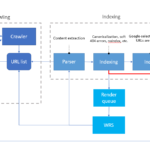Cheats vs. Treats: Change the Way We Think About Food
In the world of fitness and nutrition, the terms “cheat meal” and “cheat day” are often thrown around as a way to describe indulging in foods that are typically off-limits in a strict diet plan. But what if we reframe this narrative? Instead of viewing these indulgent moments as “cheats,” let’s start thinking of them as “treats.”
The Problem with “Cheat Meals”
Labeling a meal as a “cheat” implies that you’re doing something wrong or breaking the rules. This mindset can lead to feelings of guilt and shame, which can be detrimental to your mental and emotional well-being. It creates a negative association with food, turning eating into a source of anxiety rather than enjoyment.
For many, especially women going through menopause, managing weight and nutrition can be challenging. Hormonal changes can lead to weight gain, fatigue, and a slower metabolism. During this time, it’s crucial to maintain a positive relationship with food. When you see food as a cheat, it can exacerbate stress and make it harder to maintain a healthy lifestyle.
The Power of Treating Yourself
On the other hand, viewing these moments of indulgence as “treats” shifts the focus from guilt to gratitude. Treating yourself acknowledges that you deserve to enjoy the pleasures of food without feeling like you’ve done something wrong. It’s about balance, not perfection.
When you treat yourself, you’re making a conscious choice to enjoy something special. This approach encourages mindful eating, where you savor every bite and appreciate the experience. Mindfulness is particularly important during menopause, as stress and emotional eating can disrupt your efforts to stay fit and healthy.
Finding Balance with Treats
It’s not about depriving yourself or adhering to an unrealistic standard of eating “perfectly” all the time. Instead, it’s about understanding that a healthy lifestyle is a journey, not a destination. By incorporating treats into your diet, you create a sustainable way of living that supports both your physical and mental well-being.
For example, instead of having a cheat day where you might overindulge and feel guilty afterward, allow yourself small treats throughout the week. Enjoy a piece of dark chocolate after dinner or savor a favorite dessert on the weekend. This approach helps you maintain balance without feeling restricted or deprived.
Menopause and Nutrition
For women experiencing menopause, this approach to food can be particularly beneficial. Menopausal symptoms like mood swings, sleep disturbances, and changes in metabolism can make maintaining a healthy diet more difficult. By allowing yourself treats, you can reduce the pressure to be perfect and instead focus on nourishing your body in a way that feels good.
It’s also important to prioritize nutrient-dense foods that support hormonal balance, such as leafy greens, lean proteins, and healthy fats. Incorporating these into your daily diet can help manage symptoms and promote overall well-being.
Conclusion: Treat Yourself with Kindness
Ultimately, the key to a healthy relationship with food is kindness and moderation. By shifting from a mindset of cheating to treating, you allow yourself to enjoy the pleasures of food while still making choices that support your long-term health goals.
So, let’s stop cheating ourselves and start treating ourselves with kindness, moderation, and respect. Whether you’re navigating menopause or simply trying to maintain a balanced lifestyle, remember that it’s not about being perfect—it’s about enjoying the journey and treating yourself with care.










